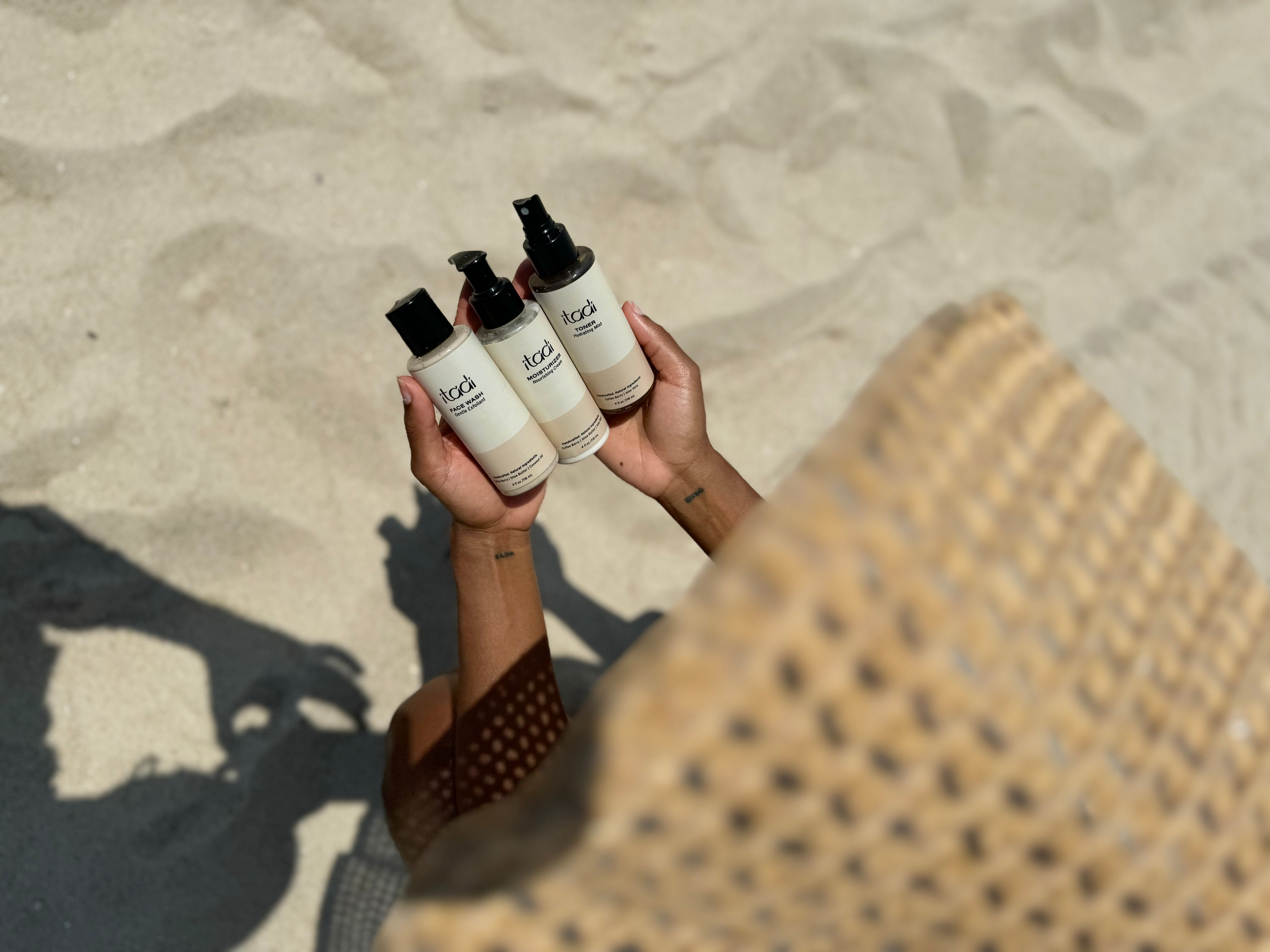Water is fundamental to life, and it plays an indispensable role in our daily skincare routines, from cleansing to rinsing. However, not all water is created equal. The quality of the water we use, particularly its hardness, can have a significant yet often overlooked impact on our skin health. Hard water, characterized by a high concentration of dissolved minerals like calcium and magnesium, can subtly undermine our skincare efforts and contribute to various skin concerns. Understanding this impact is the first step towards adopting sustainable solutions that benefit both our skin and the environment.
What is Hard Water and How Does it Affect Your Skin?
Water hardness is determined by the amount of dissolved mineral content, primarily calcium and magnesium ions. When these minerals are present in high concentrations, water is considered "hard." The effects of hard water on skin are multifaceted:
1. Soap Scum Formation and Residue
When hard water interacts with soaps and cleansers, the minerals react with the fatty acids in these products to form insoluble precipitates, commonly known as soap scum. This residue doesn't rinse away easily and can leave a thin, invisible film on the skin. This film can:
•Clog Pores: Leading to breakouts, blackheads, and whiteheads.
•Cause Dryness and Irritation: The film can prevent the skin from absorbing moisture effectively, leading to dryness, tightness, and a dull complexion. It can also irritate sensitive skin.
•Reduce Product Efficacy: The residue can create a barrier, making it harder for serums, moisturizers, and other active ingredients to penetrate the skin and deliver their intended benefits.
2. Disruption of the Skin Barrier and pH
Healthy skin has a slightly acidic pH (around 5.5), which is crucial for maintaining the skin's protective acid mantle and barrier function. Hard water typically has a higher, more alkaline pH. Repeated exposure to alkaline hard water can:
•Elevate Skin pH: Shifting the skin's natural pH balance, which can compromise the acid mantle.
•Weaken the Skin Barrier: A disrupted skin barrier is more vulnerable to environmental aggressors, moisture loss, and the entry of irritants and bacteria, potentially exacerbating conditions like eczema, psoriasis, and dermatitis.
3. Mineral Buildup
Over time, the minerals in hard water can accumulate on the skin, contributing to a rough texture and potentially dulling the complexion. For individuals with certain skin conditions, this mineral buildup can worsen symptoms.
Sustainable Solutions for Hard Water and Skincare
Addressing the challenges posed by hard water doesn't have to come at the expense of environmental responsibility. Several sustainable solutions can help mitigate its effects on your skin while minimizing your ecological footprint.
1. Water Filtration and Softening Systems
While traditional water softeners often use salt and can discharge brine into wastewater, more eco-friendly alternatives are available:
•Salt-Free Water Conditioners/Descalers: These systems use various technologies (e.g., template assisted crystallization - TAC) to alter the mineral structure, preventing them from forming scale and soap scum without removing the beneficial minerals or adding salt to the environment. They are often more sustainable as they don't require salt refills or produce wastewater.
•Showerhead Filters: A more localized and affordable option, showerhead filters can reduce chlorine and some hard water minerals, offering immediate benefits for skin and hair.
•Whole-House Filtration Systems: For a comprehensive solution, whole-house filters can improve water quality throughout your home, benefiting all water-related activities, including skincare.
2. Skincare Formulations Designed for Hard Water
Certain skincare products are formulated to counteract the effects of hard water:
•Chelating Agents: Look for cleansers and toners that contain chelating agents (e.g., EDTA, phytic acid, gluconolactone). These ingredients bind to minerals in hard water, preventing them from reacting with cleansers and forming soap scum, allowing for a more effective rinse.
•pH-Balanced Products: Opt for products that are explicitly pH-balanced to help restore the skin's natural acidity after washing with hard water.
•Barrier-Supporting Ingredients: Incorporate moisturizers and serums rich in ceramides, hyaluronic acid, and fatty acids to help repair and strengthen a compromised skin barrier.
3. Mindful Cleansing Practices
Simple adjustments to your cleansing routine can also make a difference:
•Use Less Cleanser: Since hard water makes cleansers less effective, you might be tempted to use more. Instead, use a moderate amount and ensure thorough rinsing.
•Lukewarm Water: Use lukewarm water instead of hot water, as hot water can further strip the skin of its natural oils and exacerbate dryness.
•Pat Dry Gently: Instead of rubbing, gently pat your skin dry with a clean, soft towel to minimize friction and irritation.
•Apply Moisturizer Immediately: Apply your moisturizer to slightly damp skin within minutes of cleansing to lock in hydration.
The Broader Environmental Context
Choosing sustainable water solutions extends beyond personal skincare. Water conservation and responsible water management are critical environmental issues. By opting for efficient water softening systems or shower filters, we contribute to reducing chemical discharge into water systems and conserving water resources.
The impact of water hardness on our skin is a subtle yet significant factor in achieving optimal skin health. By understanding how hard water interacts with our skin and skincare products, we can make informed choices about both our water quality and our beauty routines. Embracing sustainable solutions, from eco-friendly water treatment systems to thoughtfully formulated skincare, allows us to nurture our skin effectively while upholding our commitment to environmental stewardship. A conscious approach to water in skincare is a powerful step towards a healthier complexion and a more sustainable planet.




0 comments